~ Blaise Cendrars, picaro poeta
Cendrars, un reporter, mais un reporter de Dieu ; un aventurier spirituel ; l’homme aux vingt-sept domiciles et à l’œuvre frénétique qui est notre cymbalum mundi. Cendrars, sorte de Tolstoï du transsibérien, ce huitième Oncle, a tout chanté.
(Paul Morand)

Blaise Cendrars è lo pseudonimo di Frédéric Sauser Halle. Lo psuedonimo vuole incorporare nel nome sia la fiamma - "Blaise" - che le ceneri -"Cendrars". Nato a La-Chaux-de-Fonds [Svizzera] nel 1887 (morì a Paris nel 1961), condusse una vita errabonda, viaggiando in tutti i continenti. Scrisse una serie di raccolte di versi: La leggenda di Novgorod (La légende de Novgorod, 1909), Pasqua a New York (La Pâques à New York, 1912), La prosa del transiberiano e della piccola Je hanne de France (La prose du transsibérien et de la petite Jehan ne de France, 1913). Scrisse poi numerosi romanzi, spesso di carattere autobiografico, avventuroso e esotico: L'oro (L'or, 1925), Morovagine (Morovagine, 1926), Le confessioni di Dan Yack (La confession de Dan Yack, 1929), La vita pericolosa (La vie dangereuse, 1938), La mano mozza (La main coupée, 1946), Bourlin guer (1948). Scrisse saggi. Lavorò anche nel cinema come sceneggiatore: si veda La strada (1923) diretto da Abel Gance.
Cendrars fu un tipico figlio del suo tempo, inseguì l'ideale di una letteratura capace di infrangere i vincoli della tradizione. Il suo stile in poesia è volto soprattutto all'espressione dell'irrazionale, dell'inquietudine interiore, dell'amarezza del vivere, ricco di immagini insolite e evocazioni incisive. Ebbe un notevole influsso su Apollinaire e sui surrealisti. Il suo vitalismo nomadistico e la sua costante esplorazione del mondo suggestionarono in varia misura scrittori come Valery Larbaud e Paul Morand.
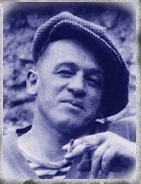 BLAISE CENDRARS,
BLAISE CENDRARS,LO SCRITTORE CHE DIVISE LA STANZA
CON CHARLOT E A CUI È DEBITORE
GUILLAUME APOLLINAIRE
di Francesco Varanini
In una poesia scrive "sono il primo che porta questo nome", e precisa: "perché me lo sono inventato io di sana pianta". Si chiamava in realtà Frédéric Sauser-Hall. E la sua stessa biografia è un romanzo, in parte misteriosa, in parte inventata.
Una leggenda fa nascere il poeta a Parigi, in un albergo della rue Saint-Jacques. Ma Frédéric nasce in realtà nel 1887 a La Chaux-de-Fonds, in Svizzera, da padre svizzero e madre scozzese.
A sette anni Frédéric è in collegio a Napoli, mentre il padre compra e vende terreni al Vomero. Viaggia con la famiglia in Egitto, in Inghilterra. A quindici anni, quando la famiglia si è stabilita a Neuchâtel, prende il treno per Basilea, attraversa la Germania, segue in Russia un trafficante ebreo. Con lui viaggia Russia, in Cina, in Armenia, in India. Si rifiuta di sposare la figlia del commerciante, è denunciato, fugge in Asia Minore, sbarca a Napoli.
A vent'anni, nei sobborghi di Parigi, si occupa di apicoltura. Due anni dopo, a Bruxelles e a Londra (dove divide la camera con Charlie Chaplin), lavora come giocoliere e clown in un locale notturno. Poi in Russia, negli Stati Uniti, in Canada, a Winipeg (lavora in una trattoria), ad Anversa (lavora in una società di navigazione), poi di nuovo a New York.
Tornato a Parigi, pubblica a sue spese Pasqua a New York. Siamo nel 1912: nello studio del pittore Delaunay si fa salotto, il giovane, eccentrico viaggiatore è sollecitato a recitare i propri versi. Tra i presenti Apollinaire, che ascolta in silenzio, ad occhi chiusi. L'anno dopo Apollinaire pubblicherà Alcools, salutato come esordio della poesia d'avanguardia. Ma il debito nei confronti di Cendrars è grande.
Due anni dopo, Sauser è volontario nella Legione Straniera. Gravemente ferito da una scheggia di granata, subisce l'amputazione del braccio destro. E per reazione prende a praticare gli sport più violenti e pericolosi, dalla boxe all'automobilismo. Studia inoltre stenografia e rifiuta l'arto artificiale.
Con un gruppo di zingari, conduce vita nomade nelle campagne francesi. Si ritira in una fattoria abbandonata. Fonda una casa editrice. Si occupa di cinema, a Roma. Nel 1924 si imbarca per il Brasile; l'anno dopo torna in Francia e in un mese scrive L'oro. Termina Moravagine, storia romanzata dei suoi anni giovanili. Tra il 1925 e il 1929 viaggia lungamente nell'America del Sud. Si dedica al giornalismo, corrispondenze di viaggio e poi, con la seconda guerra mondiale, dal fronte. Dopo la rottura del fronte, lunga peregrinazione per le strade di Francia sulla sua Alfa Romeo disegnata da Braque.
Una serie di interviste radiofoniche, nel 1952, lo rendono finalmente noto. Nel 1956, colpito da paralisi, è costretto all'immobilità. Nel 1959 riceve la Legion d'Onore; nel 1961 il Gran Premio Letterario Città di Parigi. Lo ritira la seconda moglie, famosa attrice. Quattro giorni dopo Cendrars muore.
ILES
Iles
Iles
Iles
Iles où l’on ne prendra jamais terre
Iles où l’on ne descendra jamais
Iles couvertes de végétations
Iles tapies comme des jaguars
Iles muettes
Iles immobiles
Iles inoubliables et sans nom
Je lance mes chaussures par-dessus bord car je voudrais bien aller jusqu’à vous
TU ES PLUS BELLE QUE LE CIEL ET LA MER
Quando ami devi partire
Lascia tua moglie lascia tuo figlio
Lascia il tuo amico lascia la tua amica
Lascia la tua amante lascia il tuo amante
Quando ami devi partire
~ * ~
Quand tu aimes il faut partir
Quitte ta femme quitte ton enfant
Quitte ton ami quitte ton amie
Quitte ton amante quitte ton amant
Quand tu aimes il faut partir
Le monde est plein de nègres et de négresses
Des femmes des hommes des hommes des femmes
Regarde les beaux magasins
Ce fiacre cet homme cette femme ce fiacre
Et toutes les belles marchandises
II y a l'air il y a le vent
Les montagnes l'eau le ciel la terre
Les enfants les animaux
Les plantes et le charbon de terre
Apprends à vendre à acheter à revendre
Donne prends donne prends
Quand tu aimes il faut savoir
Chanter courir manger boire
Siffler
Et apprendre à travailler
Quand tu aimes il faut partir
Ne larmoie pas en souriant
Ne te niche pas entre deux seins
Respire marche pars va-t'en
Je prends mon bain et je regarde
Je vois la bouche que je connais
La main la jambe l'œil
Je prends mon bain et je regarde
Le monde entier est toujours là
La vie pleine de choses surprenantes
Je sors de la pharmacie
Je descends juste de la bascule
Je pèse mes 80 kilos
Je t'aime
=> Extrait "Du Monde entier, Au Coeur du Monde":
Tu m'as dit si tu m'écris
Ne tape pas tout à la machine
Ajoute une ligne de ta main
Un mot un rien oh pas grand chose
Oui oui oui oui oui oui oui oui
Ma Remington est belle pourtant
Je l'aime beaucoup et travaille bien
Mon écriture est nette est claire
On voit très bien que c'est moi
qui l'ai tapée
Il y a des blancs que je suis seul à savoir faire
Vois donc l'oeil qu'à ma page
Pourtant, pour te faire plaisir j'ajoute à l'encre
Deux trois mots
Et une grosse tache d'encre
Pour que tu ne puisses pas les lire.
~ ~ ~ ~ ~ ~
| CONTRASTES Les fenêtres de ma poésie sont grand'ouvertes sur les boulevards et dans ses vitrines Brillent Les pierreries de la lumière Écoute les violons des limousines et les xylophones des linotypes Le pocheur se lave dans l'essuie-main du ciel Tout est taches de couleur Et les chapeaux des femmes qui passent sont des comètes dans l'incendie du soir | CONTRASTS The windows of my poetry are wide open to the boulevards and in the showcases Shine The precious stones of light Listen to the violins of the limousines and the xylophones of the linotypes The painter washes himself in the hand towel of the sky Everything is splashes of colour And the hats of the passing women are comets in the fire of the evening |
CONTRASTI
Le finestre della mia poesia sono spalancate sui
Boulevards e nelle vetrine
Brillano
Le gemme di luce
Ascolta i violini delle limousines e gli xilofoni
Dei linotipi
Il pittore si lava con l’asciugamano del cielo
È tutto un getto di colore
E i cappelli delle donne che passano sono comete
Nell’incendio della sera
=> Estratto da / extrait / excerpted from (check the bold section in the full English translation below):
LA PROSE DU TRANSSIBERIEN ET LA PETITE JEHANNE DE FRANCE
En ce temps-la, j'etais en mon adolescence
J'avais a peine seize ans et je ne me souvenais deja plus de mon enfance
J'etais a 16.000 lieues du lieu de ma naissance
J'etais a Moscou dans la ville des mille et trois clochers et des sept gares
Et je n'avais pas assez des sept gares et des mille et trois tours
Car mon adolescence etait si ardente et si folle
Que mon coeur tour a tour brulait comme le temple d'Ephese ou comme la Place Rouge de Moscou quand le soleil se couche.
Et mes yeux eclairaient des voies anciennes.
Et j'etais deja si mauvais poete
Que je ne savais pas aller jusqu'au bout.
Le Kremlin etait comme un immense gateau tartare croustille d'or,
Avec les grandes amandes des cathedrales, toutes blanches
Et l'or mielleux des cloches...
Un vieux moine me lisait la legende de Novgorode
J'avais soif
Et je dechiffrais des caracteres cuneiformes
Puis, tout a coup, les pigeons du Saint-Esprit s'envolaient sur la place
Et mes mains s'envolaient aussi avec des bruissements d'albatros
Et ceci, c'etait les dernieres reminiscences
Du dernier jour
Du tout dernier voyage
Et de la mer.
[…]
~ Qualcosa in inglese / English pieces:

The greatest poet of the Cubist epoch was Pierre Reverdy, because he had distinguished emotions. The next was Gertrude Stein, because she had none. Both had perfect ears and impeccable style. Blaise Cendrars (1887-1961), like Max Jacob, was a professional personality of the same period, rather than an artist. Henry Miller wrote about Cendrars extensively and admired him greatly. They have a good deal in common.
Both Cendrars and Miller present themselves to the public as livers rather than artists, and both have a talent for engaging implausibility, which sometimes catches them short. Actually this sort of thing is just as literary as Walter Pater or Henry James. It’s just a different pitch, and it depends for its effectiveness on its literary convincingness. Blaise Cendrars portrays himself in his poetry as a more picaresque and more robust and very French Whitman, a nonchalant knockabout who had been for to see and for to admire in all the most remote and exciting parts of the world.
It is interesting to go back and read some of the things that made his reputation — the volume called Kodak, the poem “Far West,” most emphatically pronounced “Fahvest,” as you discover on reading it. San Bernardino, California, is built in the center of a verdant valley, watered by a multitude of little brooks from the neighboring mountains. Trout pullulate in these brooks; innumerable herds graze in the fat fields and the shepherd stuff themselves with the local fruits, which include pineapples. Game abounds. The lapin à queue de coton called “cottontail” and the hare with long ears called “jackass,” the chat sauvage and le serpent à sonnette, “rattlesnake,” but there aren’t any more pumas nowadays. So it goes on. Hilaire Hiler used to read this whole poem, ad-libbing all sorts of French-pronounced Westernisms with hilarious effect on the select audience in the old Jockey on Boulevard Montparnasse.
As a cowboy poet, Cendrars is, I’m afraid, only a cooey-booey. As a poet of tourism, he is less convincing than Valéry Larbaud and his world-wandering, world-weary billionaire, A.O. Barnabooth. Yet convincing he is, not for what he pretends to be, but for what he is. He is the poet of the lumpen demimonde, of the sword-swallowers, escape-artists and streetcorner acrobats in the cheap hotels back of the Gaïté, of the worn and innocent whores of the Passage du Départ with runs in their stockings and holes in their shoes. It’s not just that he writes about them, although when he does he’s very good indeed, but that he thinks like them and speaks in their very voices.
This is not true of other poets of the métier, who sublimate the idiom with their own sentiment. This is the sort of thing that translators seem unable to catch. The desperate insouciance that underlies the rhythms of Cendrars’s verse and the twists of his syntax are inaccessible to American professors of French who get foundation grants.
Yet Cendrars was also intellectual and the introduction to these translations makes much of his writing on poetics. His ideas are pretty much the orthodoxy of the Cubist period and now have the musty smell of dead café conversation. Our principal emotion on reading Cendrars today is nostalgia for him and his friends and the beautiful epoch in which they came to maturity, and this is greatly reinforced by the fact that nostalgia is also close to being his own principal subject. Far away at the ends of the earth he meets a wandering tart on a transcontinental train and all the sordid purgatorial excitement of the streets of Paris lit with prostitutes floods back on him. The Far West or the Argentine pampas, which he probably never saw, are symbols of lost innocence and glamour.
One of Cendrars’s most important contributions to French literature is his prosody. He began writing vers libre in Vielé-Griffin’s sense, which is not to be translated “free verse,” but which in Cendrars’s case was a kind of rushing, sprung alexandrine or hexameter or hendecasyllable. In his first long poem this approaches the impetuous rocking rhythm of Apollinaire’s “Zone.” Cendrars, although he always denied discipleship, was a very obvious continuator of one aspect of Apollinaire, as person, poet and prosodist. Soon he was writing free verse in the English sense, a little like the early, best poetry of Carl Sandburg or even more like the long swaying rhythms of Robinson Jeffers.
His translators do not manage to transmit these virtues. I think the reason is that poetry like Cendrars’s, for all its surface blustery extroversion, is really very intimate. To translate him successfully, it would be necessary to have either shared his background and his attitude toward it or to be a consummate actor able to project oneself imaginatively into almost complete identification with his personality. However, this book contains the French texts on facing pages, and the English is usually not too far off to serve as a pony.
The youngest generation of American poets should find Cendrars stimulating. It’s a long time since poetry like this, as good as this, has been written in America. Nothing less like the imitation Jacobean verse of the older Establishment and the Pound-Williams-Olson verse of the new Establishment could be imagined. People are trying to write like this again and Cendrars could be of help — although the world of the working-class Bohemia of the slums of Paris that gives his poetry its special quality is utterly vanished from the earth.
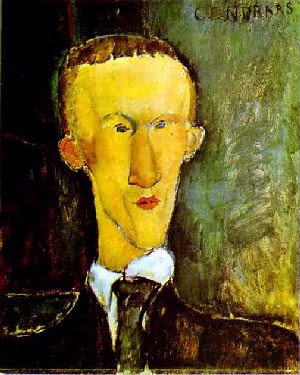
INTRODUCTION TO THE TRANS-SIBERIAN OF BLAISE CENDRAR
(Introduction and translation by Ekaterina Likhtik)
Blaise Cendrars is one of the first to introduce modernity into twentieth century poetry. With his style he ushers in a spirit of innovation into writing, he works diligently and tirelessly to find a way to express himself, a way to write his life. In 1910 he writes to his friend Fela in New York, “Ten years of study. I need ten years and I will find my own language. My style.” He spends about a year in New York between 1911 and 1912, deliriously hungry most of the time, but letting nothing deter him from his goal: he must develop his style. For him to write is not a Romantic notion, it is the exhaustive “work of a artisan.” In 1911 he changes his given name, Frédéric-Louis Sauser, to Blaise Cendrars, incorporating into his identity the words “Blaze” and “Ashes”.
For Cendars Trans-Siberian is the transition to a self-defined and elaborated poetic style. He solidifies that style, emphasizing the key to his poetry in the title. Stylistically it is “prose” on which he insists in his poetry. Cendrars is first inspired by the idea of “prose” in the work of Remy de Gourmont in his Le Latin Mystique. In it he discovers the hymns and free verse of the medireview monks of Saint-Gall. Cendrars finds Le Latin Mystique a profoundly humane work, and searches for a way to appeal to the populace at large with his writing, seeking to reverberate in as many layers of the reading public as possible. He says, “I used the word 'prose' in the Trans-Siberian in the early Latin sense of prosa dictu. Poem seemed to me too pretentious, too narrow. Prose is more open, popular.” Blaise attempts to cross the social bridges that often surround poetry, and in that sense his attitude is proletarian. His vocabulary is often offensive to the contemporary aristocracy and his versification is deemed unorthodox.
Cendrars is full of vigor and initiative. He constantly travels, he writes, and, after becoming better known and recognized for his poetic genius, he starts up magazines, he is an art critic, he publishes unknown authors, he explores the spaces between the obvious, he wants to get to the bottom of suffering. The Trans-Siberian describes his initiation or crossing over into manhood, both sexually and spiritually. This is his first great voyage, of which he was able to write for the first time “I saw” in the same way that Goya has written “Yo lo vi”.
Having lived in St. Petersburg, in New York, in London, in Switzerland, having visited an enormously large part of the world and fought in World War I, he is one of the more cosmopolitan poets of the time. This knowledge of the world, of literature, of war and of international lore can all be seen in the Trans-Siberian. The violence of the poem as well as the many references to war and death are associated with the Russo-Japanese war (1904-1905), and the Russian Revolution of 1905, two events that Cendrars witnessed while in Russia. The work of Cendrars resonates with as much force now at the other end of the twentieth century, as it did in his time. It builds a bridge for us to cross from the beginning of the 20th to the beginning of the 21st.

TRANS-SIBERIAN PROSE AND LITTLE JEANNE FROM FRANCE
I was in my adolescence at the time
Scarcely sixteen and already I no longer remembered my childhood
I was 16,000 leagues from my birthplace
I was in Moscow, in the city of a thousand and three belfries and seven railroad stations
And they weren't enough for me, the seven railroad stations and the thousand and three towers
For my adolescence was so blazing and so mad
That my heart burned in turns as the temple of Epheseus, or as Red Square in Moscow
When the sun sinks.
And my eyes shone upon the ancient routes
And I was already such a bad poet
That I didn't know how to go all the way to the end.
The Kremlin was like an immense Tatar cake
Crusted with gold,
With great almonds of cathedrals all done in white
And the honeyed gold of the bells…
An old monk was reading to me the legend of Novgorod
I was thirsty
And I was deciphering cuneiform characters
Then, suddenly, the pigeons of the Holy Spirit soared above the square
And my hands also flew up, with the rustling of the albatross
And these, these were the last recollections of the last day
Of the entire last voyage
And of the sea.
But I was a very bad poet.
I didn't know how to go to all the way to the end.
I was hungry
And all the days and all the women in the cafés and all the glasses
I would have liked to drink and to break them
And all the shop windows and all the streets
And all the homes and all the lives
And all the wheels of the hackney cabs turning in a whirlwind on the bad cobblestones
I would have wanted to thrust them into a furnace of swords
And I would have wanted to crush all the bones
And to tear out all the tongues
And to liquefy all the big bodies strange and naked under the clothing that drives me to madness…
I sensed the coming of the great red Christ of the Russian revolution…
And the sun was a bad wound
That split open like a burnt up inferno.
I was in my adolescence at the time
I was scarcely sixteen and already I didn't remember my birth
I was in Moscow, where I wanted to feed on flames
And they weren't enough for me the towers and the railroad stations that studded my eyes like constellations
In Siberia the cannon roared, it was war
Hunger cold plague cholera
And the muddy waters of Love pulled along millions of carrion
In all the railroad stations I saw departing all the last trains
No one could leave any more for the tickets were no longer sold
And the soldiers who were going away would have very much liked to stay…
An old monk sang to me the legend of Novgorod.
Me, the bad poet who didn't want to go anywhere, I could go everywhere
And also the merchants still had enough money
To go and tempt fate.
Their train left every Friday morning.
It was said there were a lot of deaths.
One merchant carried away one hundred crates of alarm clocks and cuckoos from the Black Forest
Another, hatboxes, top hats and an assortment of Sheffield corkscrews
Another, coffins from Malmoi filled with canned food and sardines in oil
Then there were lots of women
Women renting between their legs and who could also serve
Coffins
They were all patented
It was said there were a lot of deaths over there
They traveled at reduced prices
And had an open account at the bank.
Now, one Friday morning, it was finally my turn
It was December
And I too left to accompany a salesman in the jewelry business traveling to Kharbin
We had two coupés in the express and 34 chests of jewelry from Pforzheim
From the German peddler “Made in Germany”
He had dressed me in new clothes, and while boarding the train I lost a button
—I remember it, I remember it, I have often thought of it since—
I was sleeping on the trunks and I was very happy to play with the nickel-plated browning
that he had also given me
I was very happy carefree
I made believe we were robbers
We had stolen the treasure of Gloconde
And were going, thanks to the Trans-Siberian, to hide it on the other side of the world
I had to defend it against bandits from Ural who had attacked Jules Vern's traveling acrobats
Against the Khoungouzes, the Chinese boxers
And the Great Lama's enraged little Mongols
Ali Baba and the forty thieves
And those faithful to the terrible Old Man of the Mountain
And especially, against the most modern of all
The hotel rats
And all the specialists from international express trains everywhere.
And yet, and yet,
I was as sad as a child
The rhythms of the train
The “railway marrow” of American psychiatrists
The noise of the doors the voices the axles screeching on the frozen rails
The golden railing of my future
My browning the piano and the cursing of the card players in the next-door compartment
The splendid presence of Jeanne
The man in the blue glasses who nervously paced the hallway and who would look at me as he passed by
Rustling of women
And whistling of steam
And the eternal sound of wheels whirling in madness in the furrows of the sky
The windows frosted over
No nature!
And behind, the Siberian plains the low sky and the great shadows of the Taciturn Ones rising and falling
I am asleep in a blanket
Checkered
As is my life
And my life keeps me no warmer than this Scottish shawl
And all of Europe glimpsed in gusts of wind from a full steam express
Is no richer than my life
My poor life
This shawl
Unraveled on the trunks that are filled with gold
With which I trundle forth
And I dream
And I smoke
And the only flame in the universe
Is one poor thought…
From the depth of my heart tears rise
If I think, Love, about my mistress;
She is but a child, whom I found so
Pale, immaculate, in the back rooms of a bordello.
She is but a child, blond, blithe and sad,
She doesn't smile and never cries;
But deep in her eyes, when she lets you drink from them,
There trembles a gentle silver lily, the poet's flower.
She is meek and silent, and without reproach,
With a drawn out shiver at your approach;
But when I come to her, from here, from there, from a party,
She takes a step, then closes her eyes – and takes a step.
For she is my love, and the other women
Have nothing but golden dresses on great bodies ablaze,
My poor companion is so lonesome,
She is completely nude, she has no body – she is too poor.
She is but a candid, frail flower,
The poet's flower, a slight silver lily,
So cold, so alone, and already so wilted
That tears well up in me if I think of her heart.
And this night is like one hundred thousand others when a train presses on in the night
— The comets fall —
And a man and a woman, even when young, muse in making love.
The sky is like the shredded tent of a poor circus in a small fishing village
In Flanders
The sun is a smoky oil lamp
And at the very top of a trapeze a woman makes a moon.
The clarinet the piston a sharp flute and a bad tambourine
And here is my cradle
My cradle
It was always next to the piano when my mother like Madame Bovary played Beethoven sonatas
I spent my childhood in the Hanging Gardens of Babylon
And skipping school, in the railroad stations in front of departing trains
Now, I have made all the trains run behind me
Basel-Timbuktu
I have also bet on the races at Auteuil and at Longchamp
Paris – New York
Now, I have made all the trains run the course of my life
Madrid – Stockholm
And I lost all my bets
There is now only Patagonia, Patagonia, that suits my immense sadness, Patagonia, and a journey to the South Seas
I'm on the road
I've always been on the road
I'm on the road with little Jehanne from France
The train makes a perilous jump and falls back on all of its wheels
The train falls back on its wheels
The train always falls back on all of its wheels
“Blaise, tell me, are we very far from Montmartre?”
We are far, Jeanne, you've been on the move for seven days
You are far from Montmartre, from the Hill that nourished you from Sacre-Cœur that cradled you
Paris has disappeared and its enormous flame
There is nothing but continuous ash
Falling rain
Rising peat
Whirling Siberia
Heavy rebounding sheets of snow
And the bell of madness that quivers like the very last wish in the bluish air
The train beats at the heart of the heavy horizons
And your sorrow sneers…
“Tell me, Blaise, are we very far from Montmartre?”
The worries
Forget the worries
All the railroad stations cracked askew on the road
The telegraph wires on which they hang
The grimacing lampposts gesticulate and strangle them
The world expands elongates and retracts like an accordion tormented by a sadistic hand
In the shreds of the sky, locomotives in a fury
Flee
And in the holes,
The dizzying wheels the mouths the voices
And the dogs of misfortune that bark at our parcels
The demons are unchained
Scrap iron
All is in false harmony
The broom-room-room of the wheels
Jolts
Bouncing back
We are a storm in the skull of the deaf…
“Tell me, Blaise, are we very far from Montmartre?”
You irritate me, of course you know very well, we are far
Overheated madness bellows in the locomotive
The plague cholera arise on our road like burning embers
We disappear in the war completely in a tunnel
Hunger, the whore, clings to the clouds as it spreads
And battle droppings are in rancid heaps of corpses
Do as she does, perform your craft…
“Tell me, Blaise, are we very far from Montmartre?”
Yes, so we are, so we are
All the scapegoats have croaked in this desert
Hear the screech of this mite-infested herd Tomsk
Cheliabinsk Kainsk Ob Tai Shan Verkneudinsk Kurgan Samara Pensa-Tulun
Death in Manchuria
Is our last stop our last lair
This voyage is terrible
Yesterday morning
Ivan Ulitch had white hair
And Kolya Nikolai Ivanovich has been gnawing his fingers for fifteen days now…
Do as she does Death Hunger perform your craft
It costs one hundred sou, in the Trans-Siberian, it costs one hundred rubles
The benches in fever and red flashes under the table
The devil is at the piano
His gnarled fingers arouse all the women
Nature
Whores
Perform your craft
Until Kharbin…
“Tell me, Blaise, are we very far from Montmartre?”
No but…get the hell out…leave me alone
You have angular hips
Your stomach is sour and you have the clap
That's all that Paris has put in your bosom
There's also a bit of soul… because you are unhappy
Feel my pity feel my pity come towards me unto my heart
The wheels are windmills from the land of Cocagne
The windmills are crutches twirled by a beggar
We are the cripples of emptiness
We roll on our four sores
Our wings have been clipped
The wings of our seven sins
And all the trains are paddleballs of the devil
Farmyard
The modern world
Speed can't do much here but
The modern world
The faraway places are just too far
And at the end of the journey it's terrible to be a man with a woman…
“Blaise, tell me, are we very far from Montmartre?”
Feel my pity feel my pity come towards me I will tell you a story
Come to bed
Come unto my heart
I'm going to tell you a story…
Oh come! come!
In Figi spring reigns eternal
Laziness
Love swoons couples in the tall grass and hot syphilis lurks under banana trees
Come to the lost isles of the Pacific!
They are called Phoenix the Marquesas
Borneo and Java
And Sulaweisi in the form of a cat.
We can not go to Japan
Come to Mexico!
On its high plateaus tulips bloom
Tentacular creepers are the hair of the sun
Could almost be the palette and brushes of a painter
Colors deafening as gongs
Rousseau went there
There he bedazzled his life
It is the country of birds
The bird of paradise, the lyrebird
The toucan, the mocking bird
And the colibri nest among the black lilies
Come!
We will love one another in the majestic ruins of Aztec temples
You will be my idol
A checkered childish idol a little ugly and grotesquely odd
Oh come!
If you wish we will go by plane and we will fly over the country of a thousand lakes,
The nights there are immeasurably long
A prehistoric ancestor will be afraid of my motor
I will land
And I will construct a hangar for my plane with the fossils of mammoths
A primitive fire will reheat our paltry love
Samovar
And we will love one another conventionally near the pole
Oh come!
Jeanne Jeannette Pipette nono niplo nipplette
Mimi milove my dovedew my Peru
Sleepy me zeezee
Moor my manure
Dear li'l-heart
Tart
Beloved li'l goat
My li'l-sin sweet
Halfwit
Halloo
She sleeps.
She sleeps
And of all the hours of the world she hasn't swallowed a single one
All faces glimpsed in railroad stations
All clocks
The time in Paris the time in Berlin the time in Saint Petersburg and the time in all stations
And in Ufa, the blood stained face of the cannoneer
And the foolishly glowing dial in Grodno
And the perpetual rushing of the train
Each morning we set our watches to the hour
The train advances and the sun retreats
Nothing to be done, I hear the echoing bells
The great bell of Notre-Dame
The shrill bell of the Louvre that tolled Bartholomew's
The rusted peal of bells on the death of Bruge-la-Morte
The electric rings of the library bells in New York
The Venice countryside
And the bells of Moscow, the clock of the Red Door that counted for me my hours in an office
And my memories
The train weighs on the revolving plates
The train rolls
A grasseye gramophone a gypsy march
And the world, like the Jewish quarter clock in Prague deliriously turns backwards.
Strip the rose of the winds
Here murmur unchained storms
Trains roll on in a flurry on entangled tracks
Diabolical paddleballs
There are trains that never meet
Others lose themselves on the way
Stationmasters play chess
Backgammon
Billiards
Pool balls
Parables
The steel-rimmed track is a new geometry
Syracuse
Archimedes
And the soldiers who slit his throat
And the galleys
And the vessels
And the prodigious engines he invented
And all the slaughter
Ancient history
Modern history
The whirlwinds
The shipwrecks
Even the Titanic, I read it in a magazine
So numerous the visual associations that I can't develop them all in my verses
For I am still a very bad poet
For the universe overwhelms me
For I have neglected to insure myself against railroad accidents
For I don't know how to go all the way to the end
And I'm afraid
I'm afraid
I don't know how to go all the way to the end
Like my friend Chagall I could make a series of insane drawings
But I haven't taken notes on my way
“Forgive me my ignorance
“Forgive me for no longer knowing the age-old game of poetry”
As Guillaume Appollinaire says
One can read everything about war
In the Kuropatkin Memoirs
Or in the Japanese journals that are just as brutally illustrated
To what end document myself?
I abandon myself
To bursts of memory…
From Irkutsk on the voyage became much too slow
Much too long
We were in the first train to circle lake Baikal
We had adorned the train with flags and Chinese lanterns
And we left the station to sad strains of the hymn to the Tsar.
If I were a painter I would pour a lot of red, a lot of yellow on the end of this voyage
For I believe that we were all a little mad
And that an immense fever bloodied the worked-up faces of my companions on this journey
As we approached Mongolia
That roared like a fire.
The train had slowed its pace
And I noticed in the perpetual grating of the wheels
The mad accents and the sobbing
Of an eternal liturgy
I saw
I saw silent trains black trains returning from the Orient passing like phantoms
And my eye, as a headlight, still runs after these trains
In Talga 100,000 wounded were agonizing for lack of care
I visited the hospitals of Krasnoyarsk
And in Khilok we came across a long convoy of soldiers gone mad
I saw in the lazarettos the gaping gashes wounds that bled to the bone
And amputated limbs danced around or soared through the raucous air
Fire was on all faces in all hearts
Idiotic fingers were rapping on all windowpanes
And under the force of fear the stares burst open like abscesses
In all the stations all the wagons burned
And I saw
I saw trains with 60 engines escaping at full steam hounded by horizons in heat and flocks of crows that afterwards took hopeless flight
Disappearing
In the direction of Port Arthur.
In Chita we had a few days of rest
A five-day stop since the tracks were blocked
We spent it with Mister Yankelivitch who wanted to give me his only daughter in marriage
Then the train took off.
Now it was I who took a seat at the piano and I had a toothache
When I wish to I can still recall that interior the father's store and the daughter's eyes who in the evenings came to my bed
Mussogorsky
And the lieder of Hugo Wolf
And the Gobi sands
And in Khailar a caravan of white camels
I am sure I was drunk for more than 500 kilometers
But I was at the piano and that's all I could see
When you travel, you should close your eyes
Sleep
I would have liked so much to sleep
I recognize all the countries with my eyes closed by their odor
And I recognize all the trains by their rumbling
European trains have four beats while those in Asia are at five or seven beats
Others move softly and these are lullabies
And there are those that in the monotonous noise of their wheels remind me of Maeterlinck's heavy prose
I've deciphered all the wheels' chaotic texts and I've assembled the disparate elements of a violent beauty
That I possess
And which compels me.
Tsitsihar and Kharbin
I am not going any further
It is the last station
I got off at Kharbin as they had just set fire to the Red-Cross office.
O Paris
Large glowing hearth with the crossed pokers of your streets and your old homes that hunch over warming themselves
Like forefathers
And here are the posters, red and green multicolored as my brief yellow past
Yellow the proud color of French novels sold abroad.
I love to squeeze into moving buses in big cities
Those of the Saint-Germain-Montmartre line bring me to the assault of the Hill
The motors bellow like golden bulls
The bovine twilight grazes the Sacre Cœur
O Paris
Central station last stop of desire crossroads of unrest
Only the merchants of color still have a little bit of light on their doors
The “International Company of Sleeping Cars and Europeans Express Trains” has sent me their brochure
It is the most beautiful church in the world
I have friends who surround me like guardrails
They are afraid that when I leave I won't return
All the women I have met tower on the horizons
With gestures full of pity and the sad look of traffic lights in the rain
Bella, Agnes, Catherine, and the mother of my son in Italy
And the one, the mother of my love in America
There are siren screams that rip my soul
There in Manchuria a stomach still throbs as if in labor
I would like
I would like to have never gone traveling
This evening a great love torments me
And despite myself I think of little Jehanne from France.
It is on an evening of sadness that I wrote this poem in her honor.
Jeanne
The little prostitute
I am sad I am sad
I will go to the Lapin Agile to again remember my lost youth
And drink a few glasses
Then I will return alone
Paris
City of the inimitable Tower, the great Gallows and the Wheel.
Paris, 1913
~ Some more biographical notes:
Blaise Cendrars wrote in French and spent much of his life travelling restlessly. He did his best to fictionalize his past and his biographers have had much difficulties separating fact from fabulations. Cendrars's most famous novels, Sutter's Gold and Moravagine, both from 1926, have been translated into more than twenty languages. In his novels, featuring resilient heroes, Cendrars used often his cosmopolitan wanderings as a way to discover inner truths.
I straighten my papers I set up a schedule My days will be busy I don't have a minute to lose I write (from Complete Poems, 1992, tr. Ron Padgett) | Raddrizzo le mie carte Preparo un programma I miei giorni saranno indaffarati Non ho un minuto da perdere Scrivo (trad. Daubmir) |

Blaise Cendrars was born in the small city of La Chaux-de-Fonds of a Swiss father and a Scottish mother. He was educated in Neuchâtel, and later in Basle and Berne. At the age of 15 he ran way home - according to a story he escaped from his parents but another version tells his family gave up keeping him in school. Cendrars worked in Russia as an apprentice watchmaker and was there during the Revolution of 1905. In 1907 he entered the university of Berne but settled in 1910 in Paris, adopting French citizenship.
During his life Cendrars worked worked at a variety of jobs - as a film maker, journalist, art critic, and businessman. Before becoming writer he even tried horticulture and never stopped trying to earn his living by extra-literary activities. In World Authors 1900-1950 (ed. by Martin Seymour-Smith and Andrew C. Kimmens, 1996) Cendrars wrote that in his youth he traveled widely in China, Mongolia, Siberia, Persia, the Caucasus and Russia, and later in the Unites States, Canada, South America, and Africa. Some doubts have arisen whether he stoked trains in China in his youth, but perhaps this is more important from the biographical point of view than literary - the memoirs of Marco Polo, Cellini and Casanova and the autobiographical novels of Jean Genet and Henri Charrière are read in spite of reliability in all biographical details. Like the protagonist of Les confessions de Dan Yack (1928), Cendrars was a man of action, who avoided "literary" flavor in his prose, and a man of contemplation, who had almost obsessive need for exotic experiences. In Easter in New York (1912) he wrote: "Still, Lord, I took a dangerous voyage / To see a beryl intaglio of your image. / Lord, make my face, buried in my hands, / Leave there its agonizing mask."
Cendrars was considered along with Apollinaire, whom he deeply influenced, a leading figure in the literary avant-garde before and after World War I. In his early experimental poems Cendrars used pieces of newsprint, the multiple focus, simultaneous impressions, and other modernist techniques. La prose du Transibérien et de la petite Jeanne de France (1913), a combination of travelogue and lament, was printed on two-meter pages with parallel abstract paintings by Sonia Delaunay. Le Panama ou les aventures de mes sept oncles (1918) was in the form of a pocket timetable. Cendrars was closely associated with Cubism but he also published poetry Jacques Vache's Lettres de guerre, which was edited by Philippe Soupault, André Breton and Louis Aragon - founders of surrealism in literature.
Prose of the Transsiberian contains impressions from Cendrars's real or imaginary journey from Moscow to Manchuria during the 1905 Revolution and Sino-Russian War. As the train of the title speeds through the vast country, Cendrars mixes with its movement images of war, apocalyptic visions of disaster, and fates of people wounded by the great events.

Cendrars traveled incessantly and after 1914 became involved in the movie industry in Italy, France, and the United States. During World War I Cendrars joined the army. He served as a corporal and lost in 1915 in combat his right arm. In 1924 Cendrars met in Paris the American writers John Dos Passos and Hemingway. Ten years later he became friends with Henry Miller; their correspondence was published in 1995 in English. During a two-week stay in 1936 in Hollywood he wrote his impressions for Paris-Soir in series of articles which were collected in Hollywood, la mecque du cinéma (1936). It depicts with wry humour the movie industry and the town's people. Films were one of Cendrars's passions - he had worked as early as in 1918 with the director Abel Gance.
By 1925 Cendrars had ceased to publish poetry. Among his famous prose works in the 1920s is L'or (Sutter's Gold), a fictionalized story of John Sutter, a Swiss pioneer, who started the great gold rush in the northern California, built there his own empire but died in poverty. According to a literary anecdote, Stalin kept this book on his night table. Sutter's Gold can be read as the author's exploration of his inner self, like the semi-autobiographical novel Moravagine ('Death to the vagina'). In it Cendrars followed a madman, a descendant of the last King of Hungary, and a young doctor on their worldwide adventures from the Russian Revolution and to the First World War. Moravagine's madness becomes comparable with the dissolution of world and the chaotic disorder of life. "There is no truth. There's only action, action obeying a million different impulses, ephemeral action, action subjected to every possible imaginable contingency and contradiction. Life." Moravagine dies in an another asylum and the manuscript of the story finds it way to Cendrars, one of the characters in it.
The Russian filmmaker Sergei Eisenstein tried to arose Hollywood's interest in Sutter's Gold on his trip there in the 1930s. The director William Wyler obtained a scenario that Eisenstein had prepared and read plays based on the life of Sutter, including Bruno Frank's The General and the Gold and Caesar von Arx's John Augustus Sutter. Cendrars offered Wyler his services as a screenwriter, and hopefully wrote: "Should this film be succesful, I have several other first-class American scenarios." After Universal engaged William Anthony McGuire, Cendrars offered to read the script "absolutely gratis." However, Wyler was pulled off the project and Howard Hawks was assigned to it. Eventually James Cruze directed the film version, which was released in 1936. It was one of the studio's major flops of the year, and started the exit of Carl Laemmle from the chairman's office. Most of the action footage of the film was reused in Mutiny on the Blackhawk (1939).
During the German occupation of France from 1940 to 1944 Cendrars was listed as a Jewish writer of "French expression". His younger son was killed in an accident while escorting American planes in Morocco. He also had a daughter, Miriam, who later published a biography (Blaise Cendrars, 1985). Cendrars started to publish in the late 1940s memoirs, which combined travel fantasies with colorful episodes from his life. In L'homme foudroyé (1945, The Astonished Man) Cendrars walks around between lines of World War I trenches, spends time with gypsies in a travelling theatre, and attempts to drive across a South American swamp. "I am haunted by no phantoms. It is rather that the ashes I stir up contain the crystallization that hold the image (reduced or synthetic) of the living and impure beings that they constituted before the intervention of the fire. If life has a meaning, this image (from the beyond?) has perhaps some significance. That is what I should like to know. And it is why I write."- Cendrars received in 1961 the Paris Grand Prix for literature, a recognition which almost came too late. Blaise Cendrars died a few days later on January 21, 1961, in Paris.
SELECTED WORKS:
• La légende de Novgorode, 1909?
• Les Pâques à New York, 1912 - Easter in New York
• La prose du Transibérien et de la petite Jeanne de France, 1913 - Prose of the Transsiberian and of Little Jeanne of France
• Séquence, 1913
• La Guerre aux Luxembourg, 1916
• Profond aujourd'hui, 1917
• J'ai Tué, 1918
• Le Panama ou les aventures de mes sept oncles, 1918 - Panama; or, The Adventures of My Seven Uncles
• La fin du monde filmée par l'Ange Notre-Dame, 1919
• Poèmes élastiques, 1919
• Du monde entier, 1919
• J'ai saigné, 1920
• Anthologie nègre, 1921- African Saga
• Feuilles de route, 1924
• Kodak (Documentaire), 1924
• L'Or, 1925 - Sutter's Gold / Gold - suom. Kulta - film 1936, dir. by James Cruze, starring Edward Arnold, Lee Tracy, Binnie Barnes
• Moravagine, 1926 - trans.
• L'eloge de la vie dangereuse, 1926
• L'eubage, 1926
• L'ABC du cinéma, 1926
• Petits Contes nègres pour les enfants des Blancs, 1928 - Little Black Stories for Little White Children
• Le Plan de l'Aiguille, 1929 - Antarctic Fugue
• Les Confessions de Dan Yack, 1929
• Une Nuit dans la forêt, 1929
• Comment les blancs sont d'anciens noirs, 1930
• Rhum, 1930 - suom. Rommi
• Aujourd'hui, 1931
• Vol à voile, 1932
• Panorama de la pègre, 1935
• Hollywood, la mecque du cinéma, 1936 - Hollywood: Mecca of the Movies
• Histoires vraies, 1937
• La vie dangereuse, 1938
• D'outremer à indigo, 1940
• Chez l'armée anglaise, 1940
• Poésies complètes, 1944
• L 'Homme foudroyé, 1945 - The Astonished Man
• La main coupée, 1946 - Lice
• Œuvres complètes, 1947 -
• Bourlinguer, 1948 - Planus
• Œuvres choisies, 1948
• La Banlieue de Paris, 1949
• Le Lotissement du ciel, 1949 - Sky: Memoirs
• Blais Cendras vous parlea..., 1952
• Le Brésil, 1952
• Emmène-moi au bout du monde!, 1953 - To the End of the World
• Trop c'est trop, 1957
• Du monde entier au cœur du monde, 1957
• A l'aventure, 1959
• Films sans images, 1959
• Œuvres complètes, 1960-1965 (8 vols.)
• Selected Writings of Blaise Cendrars. 1966 (ed. by Walter Albert)
• Inédits secrets, 1969
• Poésies complètes, 1967
• Œuvres complètes, 1968-1971 (15 vols.)
• Dites-nous Monsieur Blaise Cendrars, 1969
• Complete Postcards from the Americas: Poems of Road and Sea, 1976
• A Night in the Forest, 1985
• Paris ma ville, 1987 (illustrated by Fernand Léger)
• Modernities, 1992
• Complete Poems, 1992
• Christmas at the Four Corners of the Earth, 1994
• Voyager aved Blaise Cendrars, 1994
• Hollywood, 1995
• La vie et la mort di soldat inconnu, 1995
• L'eubage, 1995
• Correspondance 1934-1979, 1995 (Blaise Cendrars, Henry Miller)
• Shadow, 1995 (illustrated by Marcia Brown)
• La carissima: genèse et transformation, 1996 (ed. by Anna Maibach)
• Madame mon copain, 1997

LES CITATIONS DE BLAISE CENDRARS
«Rien n'est admissible ; sauf la vie, à condition de la réinventer chaque jour.»
«Pour être désespéré, il faut avoir vécu et aimer encore le monde.»
«Le seul fait d'exister est un véritable bonheur.»
«Ecrire, ce n'est pas vivre. C'est peut-être survivre.»
«L'univers est une digestion. Vivre est une action magique.»
- Emmène-moi au bout du monde
«Ecrire est une vue de l'esprit. C'est un travail ingrat qui mène à la solitude.»
- L'homme foudroyé
«Sans l'appui de l'égoïsme, l'animal humain ne se serait jamais développé. L'égoïsme est la liane après laquelle les hommes se sont hissés hors des marais croupissants pour sortir de la jungle.»
- Hors la loi!
«Je ne trempe pas ma plume dans un encrier mais dans la vie.»
«La sérénité ne peut être atteinte que par un esprit désespéré et, pour être désespéré, il faut avoir beaucoup vécu et aimer encore le monde.»
- Une nuit dans la forêt
«C'est dans ce que les hommes ont de plus commun qu'ils se différencient le plus.»
- Extrait d' Aujourd'hui
«La folie est le propre de l'homme.»
- Bourlinguer
«Quand on aime il faut partir.»
«Vivez, ah ! Vivez donc, et qu’importe la suite ! N’ayez pas de remords. Vous n’êtes pas Juge.»
- Bourlinguer
Etichette: amore, Cendrars, Henry Miller, musica, picaresco, poesia, traduzione, viaggiare, Whitman
 ...e tu?
...e tu?








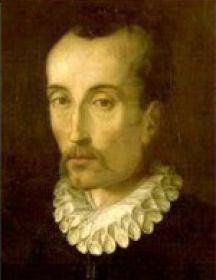
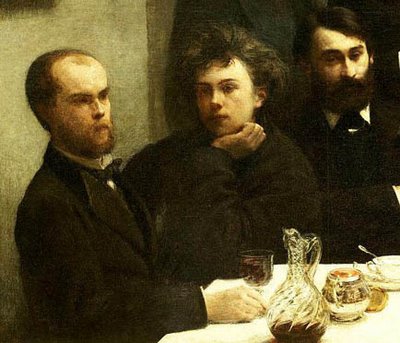



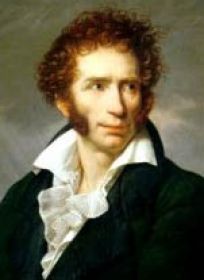






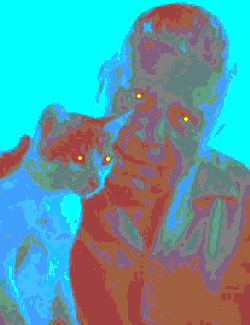


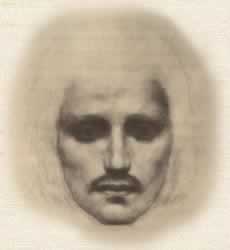

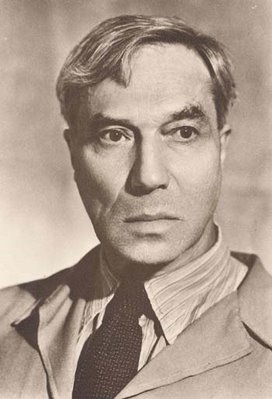
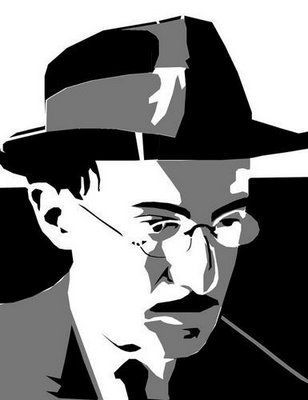




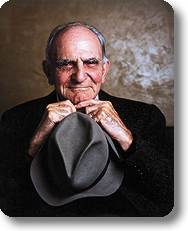


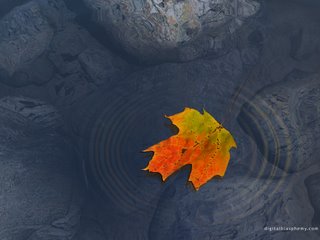


Non sono riuscito a trovare in rete delle poesie di Cendrars tradotte in italiano.
C'e' ben poco di questo poeta/scrittore, che sembra essere dimenticato in Italia... e ovunque...
Dovro' trascrivere poesie da qualche libro pubblicato in Italia negli anni 60-70. Chi ne avesse, e' pregato di incollarmele qui
Merci.